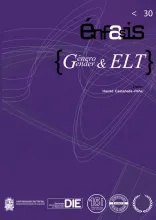
Since the issuance of the United Nations Convention on Children’s Rights in 1989, the place of children in society has gone through a major change. The new approach treats children as active subjects, with minds of their own and a specific role in society, not as mere objects who need to be protected. With that in mind, I decided to analyze a series of Colombian textbooks for teaching English to primary school students from a critical discourse analysis perspective (Van Dijk, 1993) in order to discuss the way the material portrays children and their discourses about children as subjects with rights.
I was motivated by reports from the UNICEF (2010) and the Bogotá newspaper El Tiempo whose conclusions stated that Colombian children were being silenced and discriminated by society. The purpose of my study was to determine the extent to which Colombian English textbooks were supporting the new concept of children as subjects with right. From the evidence of the textbooks, I found that children's enjoyment of some values and rights was acknowledged but they are still restricted by a Colombian monoculture that intends to homogenize. Judging by the activities and illustrations in the textbooks, there are limited opportunities for children to actively participate in society. The textbooks employ three discourses. The first, which deals with gender and race, upholds the ideal of equity and diversity but might have included more references to ethnic minorities or young parents, in order to avoid a homogenized view of society (Soler, 2006). The second, which deals with children's rights, acknowledges that they are active subjects of their own development, capable of acquiring knowledge and becoming active citizens (Pineda et al., 2009), yet the activities in the textbooks offered few opportunities for them to participate in society beyond providing referential information. The third, which uses short stories, examines some aspects of the agency and value systems of children and seeks to make them aware that they are active subjects with rights and have/hold duties as citizens.